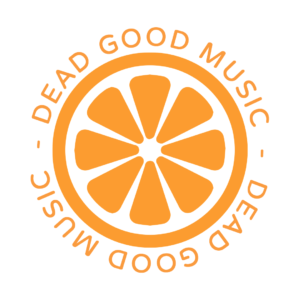One aspect of Mereba’s abundant creative aptitude is her gift of the gab. A true wordsmith, Mereba has the sharp-witted, imaginative ability to twist and contort locution in a way that may seem effortless, but is only acquired through dedicated practice and deep thought. Graceful articulation seems both learned and inherited for the neo-folk/soul songwriter. With Stevie Wonder as a mentor and a bevy of creative collaborators surrounding her, including– but not limited to– the Spillage Village collective, Mereba is well on her way to mastering the art of creative, evocative musical expression. On her 2019 debut with Interscope Records, The Jungle Is The Only Way Out, Mereba craftily weaves in and out of turns of phrase, releasing swarms of demons and angels alike.
Beginning with “more,” the isolated spoken-word introduction feels like a permission granted to live, well, more: “Need to write more / Freedom to fight more / Seek insight more / Ignite more / Soothe the plight more / Do more, more.” Mereba shared her intention for the intro in an interview with She Shreds, saying, “I wanted to start the album with a reminder to myself. Whatever journey I’m about to embark on, I never want to forget these basic things that make up who I am as a person. It’s like when you’re going through rough times—you forget the best parts of you. ‘More’ is a mantra that reminds me there’s still more for me to do, and to keep trying.”
Slinking, then swelling, “Kinfolk” feels like a dramatic dance with a devil Mereba knows well. Beginning at the toes, then gradually building to the heart, spreading to the fingertips, and finally plateauing at the head, “Kinfolk” is a murky, bluesy track that’s reminiscent of a fork in a gravel road, deep in the belly of the South. In it, Mereba sings of her beloved counterparts, and the rich cultural environment they’ve managed to cultivate despite ancestral plight.
Produced by 9th Wonder, “Black Truck” is a proclamation of perseverance, a testament to the power of patience. In the first verse, Mereba begs the universe for mercy during times of hardship, to which the universe responds: “You always did like it the hard way, since you was a kid / Look at the scars on your leg, you know you keep choosing the wild road.” This is the first track on TJITOWO where we hear Mereba flex her rap muscles; in the last verse, she cleverly refers to her intellect as the fiercest weapon in her arsenal. “Black Truck” feels like a letter to Mereba’s younger self, in which she pleads to keep the little fire inside burning: “Ain’t no need to stress, just keep a vest over your chest / Meaning, don’t be taking bullet wounds that keep you in your room / Feelin’ less than impressed, just keep it cool.”
The mind can be a wonderland of limitless imagination and possibility, but without the necessary grounding of reality, it can quickly become a place of imprisonment. “Presence breeds an interesting part of creativity,” Mereba stated in an interview with Vince Staples for Interview Magazine. “You observe the most universal, simple things about life when you’re present versus when you’re thinking ahead.” With a pen as sharp as a knife, Mereba artfully imparts similar fundamental slivers of wisdom on “dodging the devil,” a spoken-word interlude: “Youth grants grace, growth grants grit,” the poet calmly recites, “Don’t plant a seed in your mind if you do not wish to grow it.”
The aforementioned ties to Atlanta’s own Spillage Village come through on The Jungle Is The Only Way Out, with “Heatwave” and “Sandstorm,” which feature alternative R&B and hip-hop artist 6lack and fellow wordsmith, JID. Both members of the collective, the three came up like family in Atlanta. “Atlanta helped me tap into my potential,” Mereba stated in a 2014 interview with AFROPUNK. “I started rapping and I found myself getting more creative in the way I was expressing myself, listening to different types of music and just immersing myself into the culture. It forced me to spread my wings as a writer and a creator in general because I was around so much diverse talent and innate creativity.”
A hub for some of hip-hop’s most prominent artists, the city’s influence on Mereba can be heard on tracks like “Planet U” and “Stay Tru.” Stretching and warping clever wordplay relating to the cosmos, Mereba raps about a celestial lover on “Planet U:” “Not sure where you come from / Maybe the moon was your womb and Spock was your doc / Your pops a vacuum, filled up with the dust of trillions of stars that dim next to you.”
The Jungle Is The Only Way Out is a patchwork quilt of musicality. Embroidered with threads of folk, hip-hop, R&B, soul, blues and reggae, Mereba’s voice and poetic witticism act as the needle, puncturing and conjoining each track to the next. The album closes with the luminescent, airy “Souvenir,” which the artist wrote after an LSD trip. “‘Souvenir’ is an ode to the best trip lucy and I ever took,” the artist shared in a statement. “The next morning, I wrote the way I’d describe colors on Earth to the angels/extraterrestrials I had met.” An appropriate end to the kaleidoscopic experience of The Jungle Is The Only Way Out, “Souvenir” is an integration of Mereba’s inner and outer worlds, leaving us trapped in reverie and floating among the clouds.
Words by Jessica K

